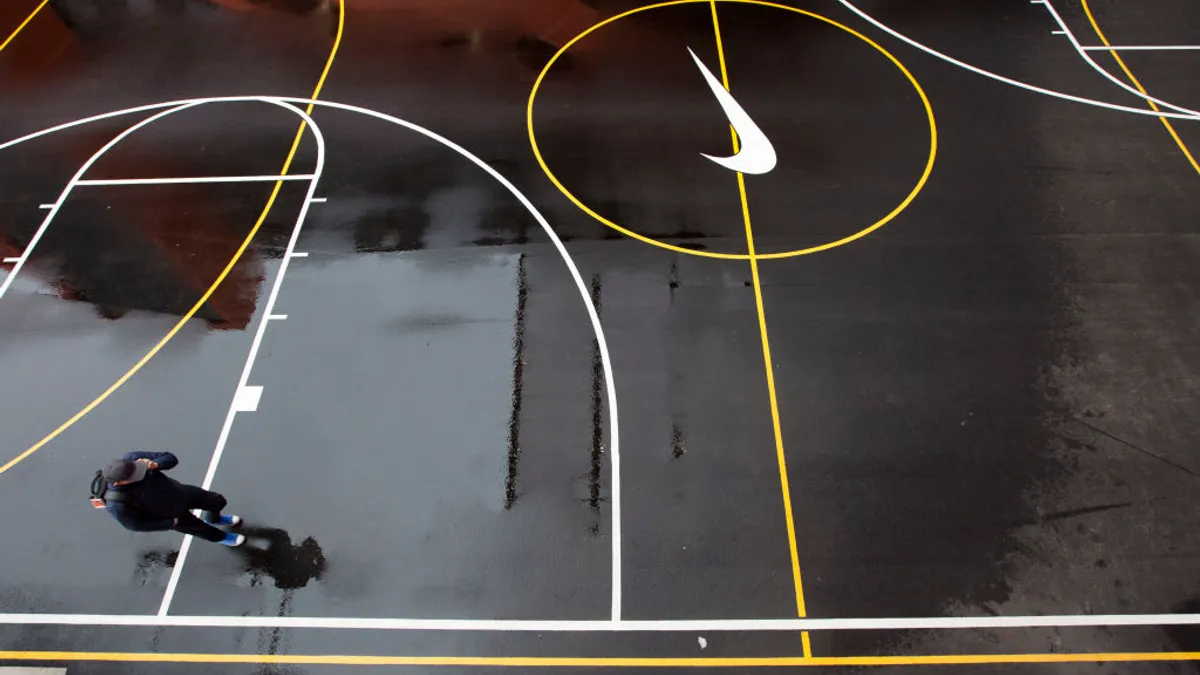The Tiny Jewel Box is growing.
The family-owned business, which has occupied a space in Washington, D.C's retail landscape since 1930, has a rich connection with its city of residence. The company has worked with presidents, first ladies, foreign dignitaries, superstars, tourists and everyday customers.
It also weathered a pandemic and came out the other end to a skyrocketing luxury watch business.
This June, the retailer opened up a 1,000-square-foot space in its store dedicated to Swiss watchmaking luxury brand Patek Philippe. And with another dedicated space to Rolex opening in early 2022, this storied retailer is becoming a global touchpoint for luxury watch collectors.
Would you buy a $33,000 watch?
To understand Tiny Jewel Box's excitement about its expansion, you have to understand what drives people to buy luxury watches. According to McKinsey & Company, the watch business had combined annual sales of over $49 billion in 2019. That segment of the market, along with fine jewelry, "represent meaningful cultural assets that have for centuries reflected human preoccupations with creativity, status, symbolism and self-expression," per the company's recent State of Fashion: Watches and Jewelry report.
One of the peak examples of watchmaking within the luxury market is Patek Philippe. Founded in 1839, the company is the last independent, family-owned Genevan watch manufacturer.
And collectors of the brand seriously love Patek Philippe. They revel in the craftsmanship, the elusiveness of its products, the pursuit of collecting, the ability to visually show off success and the luxuriousness of wearing the equivalent of a sports car on their wrist.
"People love setting their watches, playing with their watches, understanding the functionality of watches. There's a kind of connectedness to it that people develop," said Matthew Rosenheim, President of Tiny Jewel Box. "There's a real broad, growing culture of watch enthusiasts out there. So customers … love to come to the store and just sit with us, and talk watches and share their own passion. So we do that all day long."
And, that obsession over craftsmanship (and the bragging rights that come with ownership) comes at a price. The entry-level price point for a Patek Philippe is just under $20,000, with the average price point around $44,000, Rosenheim explained. And it can go higher than that — over a million dollars. "Those watches are generally not seen by the public," he said.
But, Patek Philippe is a specific kind of brand that is going to gain repeat collectors, according to Charlotte Sheridan, director of The Small Biz Expert. While some people may buy a once-in-a-lifetime indulgence piece, Patek Philippe "tends to be the second thing that people buy after they bought their own Rolex." It involves what Sheridan calls "regular treaters" that often buy luxury pieces, rather than as a one-off statement piece.
And Patek Philippe knows how to sway desire and keep its collectors guessing. The company recently discontinued the Nautilus 5711 — its most enticing, coveted watch. The timepiece, which sold for over $33,000, was rumored to have a waitlist of up to 10 years. The news flummoxed watch collectors. "The willingness to walk away from this mega-successful watch to bring focus to the breadth of what they're doing is a perfect example of long-term thinking that really shocked the watch market," Rosenheim said.
The style is currently being resold for around $100,000 on platforms like eBay. So, while some fashion products like handbags may go out of style, luxury watches have far longer staying power. "They actually increase in value as time goes on, and they become rarer," Sheridan said.
But a big reason why some collectors can't get enough Patek Philippe? It's a great way to diversify their portfolios. "It's one that's different," Sheridan said regarding investing in luxury watches. "We see the same with fine wines. There's someone [who's] got enough money to invest. They want to invest in something that's interesting — and an alternative to stocks or shares and bricks and mortar."
Expansion during a pandemic
Throughout Tiny Jewel Box's history, the company resided in a couple of locations in D.C., ultimately landing in 2015 at a busy corner at the crossroads of Connecticut Avenue and M Street, NW. The retailer went from 1,500 square feet to nearly 12,500, which enabled it to expand its designer jewelry and watch collections. At that time, Rosenheim explained, "the watch brands were demanding this global, consistent brand presence." So, even then, "a lot of the move was about watches."
By 2016, Tiny Jewel Box became an authorized dealer of Patek Philippe. The brand had an in-store showroom space of 200 square feet for four years. Discussions to expand the partnership started in late 2019 and lasted about two years, resulting in a build out of the Patek Philippe portion of the store in 2021.
But, like many small businesses that were deemed nonessential during the roughest days of the pandemic, Tiny Jewel Box had to temporarily shut its doors in mid-March of 2020, only to reopen at the end of June of that year. Yet, the company still had its eyes set on the future. Because while a global economy was reacting to the pandemic, the luxury space was still growing.
"Prior to the pandemic, the demand far outstripped supply," Rosenheim said. "Demand never abated during the pandemic. If anything, it got stronger."
During the pandemic, affluent customers still were seeking ways to celebrate occasions and commemorate milestones, and many marked those events by looking to the luxury watch market since they couldn't do things like travel. "But the truth is, the demand for Patek as well as for Rolex is really stronger than it's ever been probably in the history of the brands," Rosenheim said.
While Tiny Jewel Box saw increased interest in its luxury brands, the overall watch market took a spill during the pandemic, experiencing a 25% to 30% revenue decline. The segment is expected to rebound between now and 2025, with a modest 1% to 3% increase per year, but with luxury and ultra-luxury players continuing to drive growth. Additionally, McKinsey forecasts that around $2.4 billion in revenue will transfer from retailers to watchmakers as direct-to-consumer options increase in popularity, thereby cutting out traditional retailers. Ultra-luxury watch segments (defined as products over $30,000) could expand DTC sales from 20% in 2019 up to 30% in the next four years.
There are exceptions to this projection, though. Two companies are named by McKinsey as being exempt to the upcoming trend: Patek Philippe and Rolex. Those companies "remain outliers to the DTC wave," the analysts wrote, "and are not expected to change that position."
That means that Tiny Jewel Box, with its expanded Patek Philippe offering and upcoming build out of Rolex, is well suited to do what it does best: build personal relationships with shoppers and collectors. Their product offerings are projected to remain largely untouched by larger DTC growth.
Meanwhile, Tiny Jewel Box is trying to keep up with customer demand.
"I think the appreciation for fine watchmaking in the United States has a lot of room to grow," said Rosenheim. "We have a real collector's culture that is evolving in this country. And, a fine Swiss watch is an aspirational product to someone one who got their first promotion or their first job."























